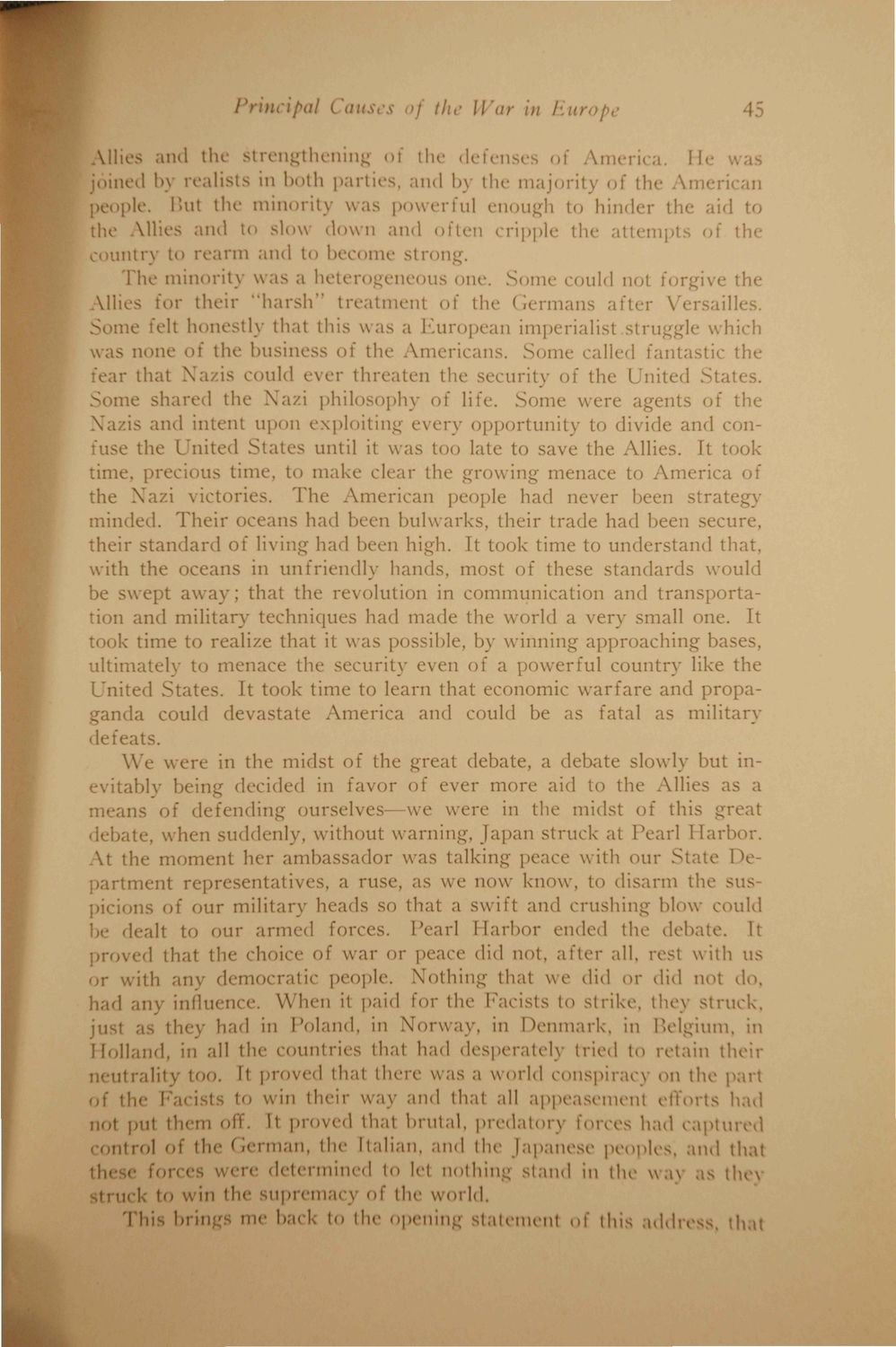| |
| |
Caption: Convocation - 1942 Winter-Spring
This is a reduced-resolution page image for fast online browsing.

EXTRACTED TEXT FROM PAGE:
Principal Can, th War in Eut 45 Ulies and the strengthening of the defenses of Amen. He >ined b) i ilists in both parties m<| by the majoril the Ameri< n people. But the minority was powerful enough to hinder th id t < the \llies and to slew down and often crippl the attem tl untry to rearm and to become strong. The minorit) was a heterogeneous one. Some « ould not i ive tl Ulies for their ' h a r s h ' " treatment of the Germans after \ aille Some felt honestly that this was a European imperialist s t r u which was none \i the business of the Americans. Some called fantastic th ar that Nazis >uld ever threaten the security of the United Stal Some share 1 the Nazi philos phy of life. Some were agents E thNazis and intent upon exploiting every opportunity to divide and conuse the United States until it was too late to save the Allies. Id tool time, precious time, to make clear the growing menace to .America of the Nazi victories. The American people had never been strategy rinded. Their oceans had been bulwarks, their trade had been secure, their standard of living had been high. It took time to understand that with the oceans in unfriendly hands, most of these standards would e swept a w a y ; that the revolution in communication and transportation and military techniques had made tlie world a very small one. It k time to realize that it was possible, by winning approaching bases, ultimately to menace the security even of a powerful country like the United States. It took time to learn that economic warfare and propaganda could devastate America and could be as fatal as military defeats. W e were in the midst of the great debate, a debate slowly but invitablv being d ided in favor of ever more aid to the Allies as a i of defending ourselves—we were in the midst of this great debal when suddenly, without warning. Japan struck at Pearl Harbor, At the moment her ambassador was talking peace with our State IVartment representatives, a ruse, as we now know, to disarm the SUS ions of our military heads so that a swift and crushing blow c aid be dealt to our armed forces. Pearl Harbor ended the debate. It pro\ I that the choice of war or peace did not. after all, rest with us r with any democratic people. Nothing that we did or did not do, h; tny inlluen \ When it paid for the FacistS to s t r i k e they struck just they had in Poland, in Norway, in Denmark, in Belgium, in Holland, in all the countries that had desperately tried to retain their n itralit) loo. It proved thai there was a world conspiracy on the part f the Facists to win their way and that all appeasement efforts had not put them oi It proved thai brutal, predatory forces had captured ontrol of the I rman, the Italian, and the Japanese people ui.l that th- e foi 3 wen determined to lei nothing stand in the wa\ .. the> OM to w in the supremacy of the woi Id. This brings m back to the opening statement of this addr< < that
| |